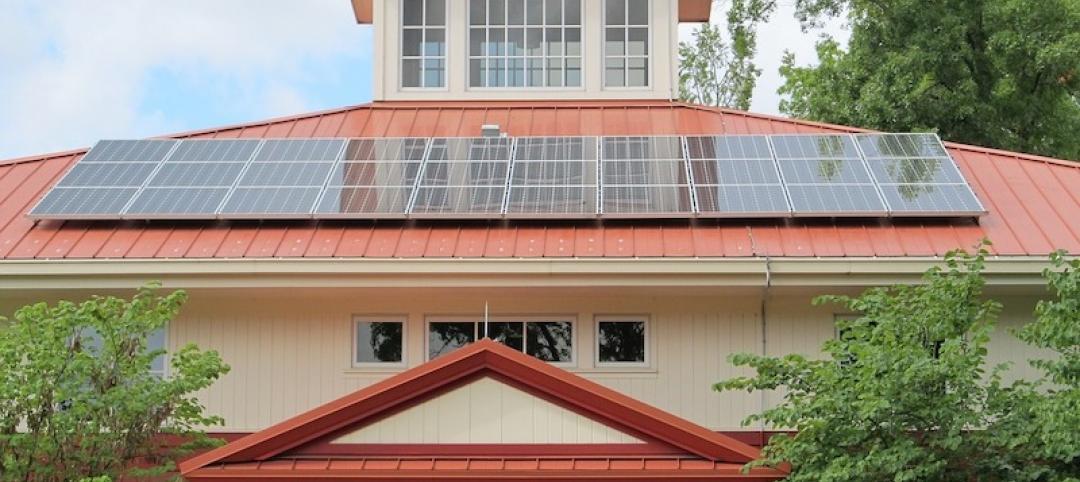While organizations such as the International Code Council set energy efficiency standards, in the U.S., state and local governments have the responsibility of adopting their own building codes.
This decentralized approach to code adoption means much of the work of reducing the carbon impact of buildings is occurring in statehouses and city halls. As a result, a growing group of clean energy and efficiency advocates are focusing on instituting local code amendments that improve on the model code.
In Minnesota, for instance, a coalition of cities and environmentalists are advocating for policy that would shift commercial buildings to net-zero by 2036. The New Buildings Institute (NBI) has submitted code proposals in that state to make new buildings electric-ready. NBI is also working on proposals for Wisconsin and Michigan.
New York, Seattle, and Massachusetts have strengthened building codes beyond the national standard, while lawmakers in nearly 20 states, including Wyoming, Iowa, and Colorado, have considered legislation that would prohibit bans on gas in new buildings. These developments indicate that the fight over energy efficiency code provisions is likely to heat up.
Related Stories
| Jun 26, 2014
Ohio is first state to roll back renewable energy standards
Ohio became the nation’s first state to roll back renewable energy standards after the state House of Representatives passed Senate Bill 310 and Gov. John Kasich recently signed the measure.
| Jun 26, 2014
Walkable areas lead to higher rents for developers
New research from a George Washington University research group and LOCUS, a coalition of real estate investors that's part of Smart Growth America,says that offices in “Walkable Urban Places (WalkUPs)” bring developers 74% more rent per square foot.
| Jun 18, 2014
ASHRAE publishes guideline on specifying Building Automation Systems
Performance monitoring guidance is a key feature of the document. It provides designers of BAS systems with recommendations for good practice, project considerations, and detailed discussion of design options.
| Jun 18, 2014
Battle over low-cost, Chinese-made solar equipment could stunt solar power growth
The U.S. Department of Commerce tentatively agreed to assess tariffs of up to 35% on solar equipment, a move that could slow the rapid growth of the domestic solar power industry.
| Jun 18, 2014
Senate passes ‘compromise’ bill that green lights 26 new VA hospitals, clinics
The U.S. Senate reached a compromise deal combining elements of two competing Veterans Administration reform bills that would, among other things, gives the go-ahead for the construction of 26 new VA hospitals and clinics.
| Jun 18, 2014
Pittsboro, N.C., approves massive new development plan
The Pittsboro, N.C., Board of Commissioners approved the master plan for Chatham Park, a massive residential and commercial project that could bring 60,000 people to Pittsboro over several decades.
| Jun 11, 2014
AGC to study causes of construction deaths, injuries
The Associated General Contractors of America is conducting a new study to make job sites safer and search for ways to lower the number of injuries and deaths in the construction industry.
| Jun 11, 2014
U.S. infrastructure quality ranks only 19th in the world
The quality of infrastructure in the U.S. ranks just 19th in the world, trailing countries such as Oman, Portugal, and Spain, according to the World Economic Forum’s Global Competitiveness Report.
| Jun 11, 2014
ISO releases standards for comparing city services worldwide
The International Organization for Standardization (ISO) has created the first standards to compare services of the world’s cities.
| Jun 11, 2014
Federal bill would promote shifting to energy-efficient roofs
A bipartisan proposal from U.S. Reps. Tom Reed, R-N.Y., and Bill Pascrell, D-N.J., would make roof replacement cost less and would help commercial building owners adopt energy-efficient systems.














